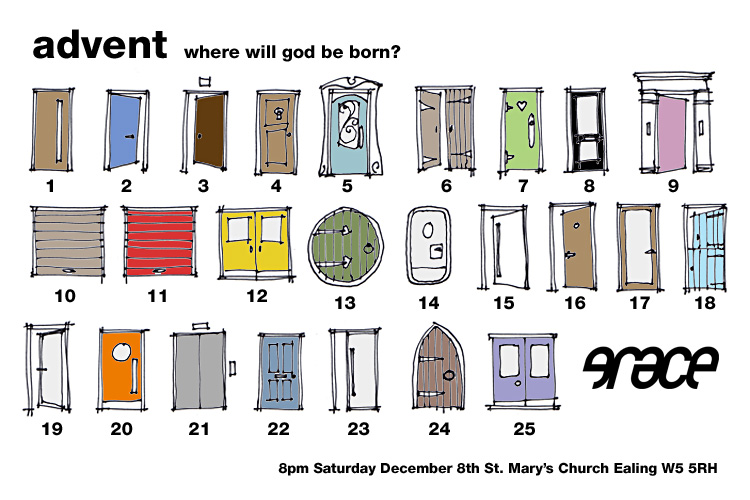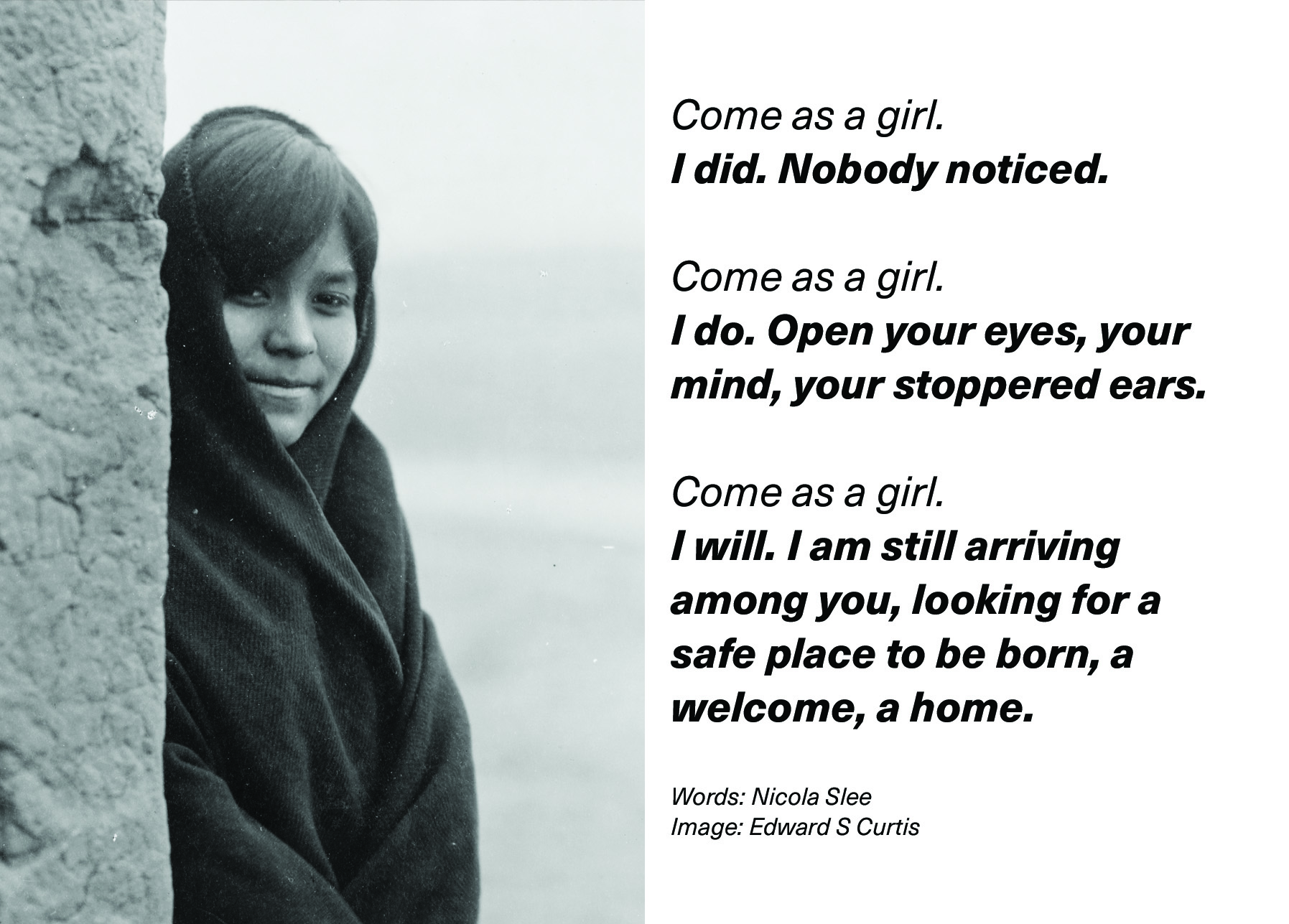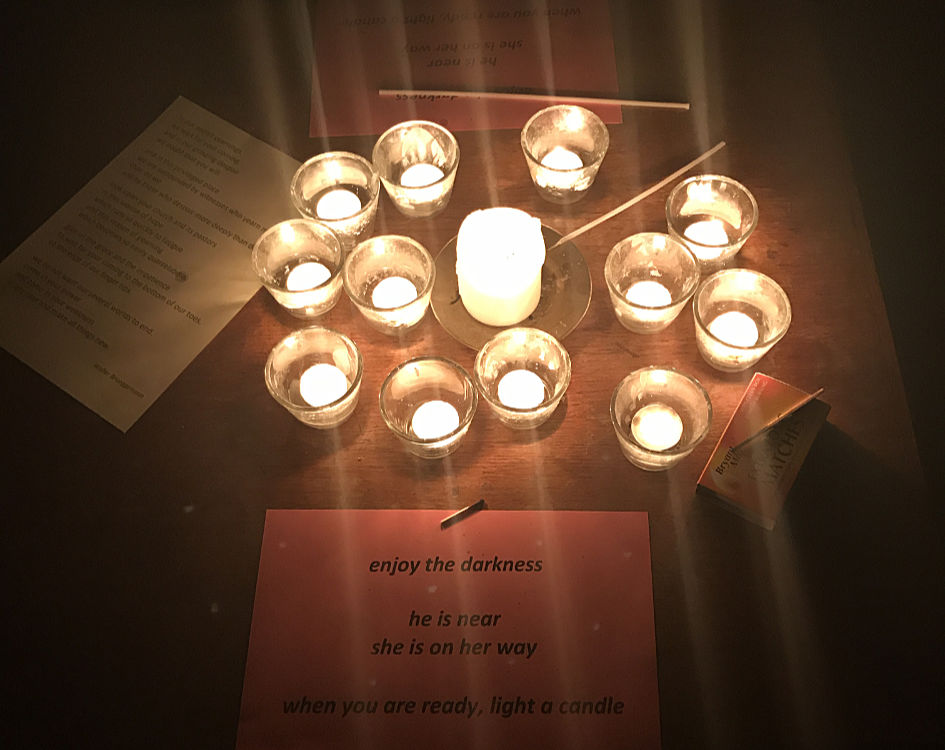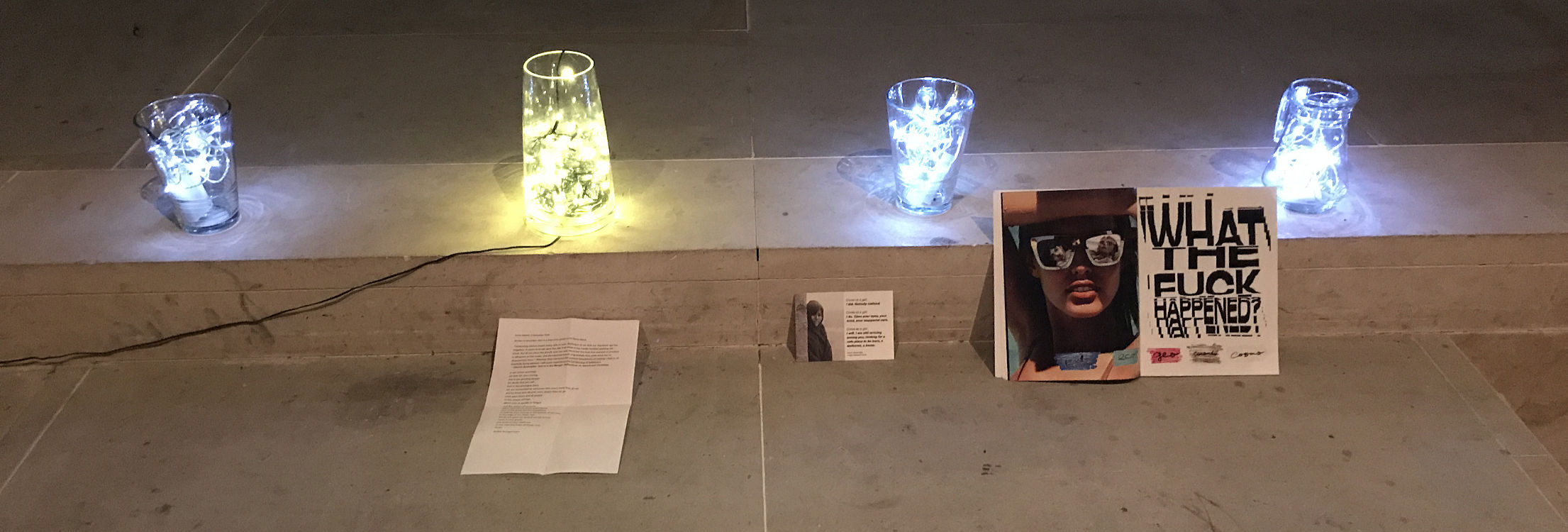December 2018: Advent

This year Grace was as early in December as it can be, so we went for an Advent theme to be explored in reflections, music and prayers. However, we still did mulled wine and mince pies in the café afterwards!
It was simply called Grace Advent and was a series of reflections/songs/prayers related to Advent. There was no planning group involved - the idea was that everyone (or at least several people) would bring something to contribute. The previous Grace took so much effort we didn’t want to be doing something too demanding! We didn’t co-ordinate it in advance - we simply saw what was there on the night and collated accordingly.
It was 50 years since the Apollo 8 mission, so we showed Jon Birch's movie 'Apollo Christmas' with the voices of the astronauts reading Genesis 1 from lunar orbit. (Even though we had said it was an Advent service!)
We read a piece by theologian Nicola Slee in which she considers the impact if Christ were to be incarnate as a girl in the present day.
Thus, at Advent most particularly, but at any time of the year, we are invited to welcome the Christ who continues to be born among us: black and white, young and old, male and female (and gender queer), in likely and unlikely places. And, as the historical Jesus was born a poor refugee among an oppressed and despised people, so Christ continues to be born among us as the vulnerable, unprotected and unnoticed one dwelling amongst the poor, the despised and oppressed. It just turns out that, in our own time, this is most likely to be a girl child.
Both at the time of Jesus and in our own world, the child remains the most powerful symbol of those who are most radically powerless and dispossessed – and the girl child very particularly. In a global setting, girls are still those most likely to be aborted or abandoned at birth, deprived of education, healthcare and basic rights, at risk of sexual and physical abuse and trafficking. There are plenty of statistics to prove it, and daily on our TV screens we see and hear examples of the vulnerability and abuse of women and girls around the world. In times of war, women and girls are most likely to be raped and displaced from their homes; in so-called ‘peace’ time, women and girls are most at threat from domestic violence, malnourishment and slavery in their own homes.
In such a world, looking and longing for the coming of God as a girl is not simply a wishful fantasy, a joke or a feminist whim, but an urgent desire for liberation and healing for these vulnerable little ones. It is a cry to the God who identifies with the little ones and the least amongst men to come amongst us anew as a young girl, sharing the danger and the delight, the potential and the immense risk of female flesh.
What might it mean to take seriously the notion that young girls can represent and symbolize the coming of Christ in our midst? It would mean taking the gifts and experiences of girls seriously in the worship, theology and life of the church more generally; it would mean listening to them seriously and regarding them not only as ‘future church’ but as present church. It would mean expecting to learn and receive from girls, and not only seeing ourselves as those who teach and nurture them. It would mean committing to their full visibility in the life of the church, searching for scriptures and stories and images of girls that are positive and affirming of the potential of girls. It would also mean taking seriously the risk and danger to girls in our society and world, and having courage to name these realities in Christian worship and teaching. It would mean regarding girls, as well as children generally, as theologians who might teach us, as well as disciples who learn with us in the lifelong process of becoming what we are called to be.
Nicola Slee
We handed out the 'Come as a girl' postcard below:

Jenny Baker showed the 'Run like a girl' movie by Always and talked about her initiative 'Out of the Box' greetings cards, which challenge the stereotypes of girls that mainstream greetings cards perpetuate. See also slideshow for images.
Photos
<< swipe left


